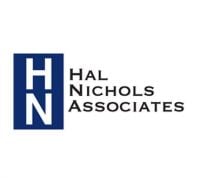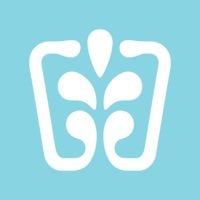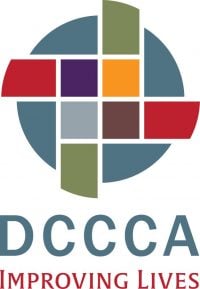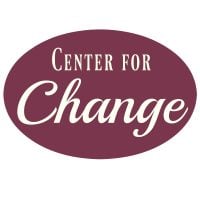Chautauqua Counseling Center
Drug Rehab Center in Kansas City, Kansas
Chautauqua Counseling Center in Kansas City provides addiction treatment and behavioral health services, including inpatient, outpatient, and telehealth, along with individual, family, and group counseling sessions utilizing evidence-based and alternative therapies.
About This Kansas Facility
Chautauqua Counseling Center is a comprehensive addiction treatment and behavioral health service located in Kansas City, Kansas. Founded in 1965, it is one of the oldest not-for-profit addiction treatment centers in the city and provides a wide range of inpatient, outpatient, and telehealth services to individuals and families struggling with substance abuse. They also offer a range of therapeutic services and mental health treatments, including individual, family, and group counseling sessions.
At Chautauqua, their clinical team is focused on helping clients break free from the cycle of addiction and substance abuse. Their certified clinicians specialize in providing evidence-based treatments tailored to each client’s needs and provide an integrated, comprehensive approach. This includes cognitive behavioral therapy and dialectical behavior therapy, along with trauma-informed care, and other alternative therapies to help teach individuals healthier ways to cope with difficult feelings and emotions.
Chautauqua Counseling Center is accredited by The Joint Commission, licensed by the Kansas Department of Mental Health, and has been repeatedly recognized by the Joint Commission as a Top Performer. They also offer dual diagnosis treatment and an array of additional services designed to help individuals struggling with addiction and co-occurring mental health disorders, such as relapse prevention and aftercare planning.
Genders
Ages
Modality
Additional
Accreditations
SAMHSA
Conditions and Issues Treated
A drug abuser needs help because if no one helps them, they will not leave their vicious circle.
People who abuse drugs are likely to suffer from an addiction, which can cause serious health problems. It can also cause quarrels with people around them. It is common for drug abusers to have difficulty holding down jobs or relationships, but sometimes people around them can be quite tolerant. There are cases where the families of the drug abusers do not want to see them get any help, and the subject becomes controversial.
When it comes to helping drug abusers get sober, there are many options to choose from. It is essential to state that there is no “correct” way of doing things. People are different, and they need different types of help to get over their addiction.
Opioid addiction treatment should be done in a medically supervised drug rehab. Opioid addiction treatment will include detoxification and drug rehab counseling to help both the user and their loved ones learn how to live a successful sober lifestyle. Methadone, buprenorphine, and naltrexone are three medications that can help treat opioid addiction. Individual drug rehab counseling sessions can be helpful to discuss any questions or concerns with the drug treatment program.
Levels of Care Offered at Chautauqua Counseling Center
This center offers a variety of custom treatment tailored to individual recovery. Currently available are Aftercare Support, Drug Rehab, Intensive Outpatient, Intervention, Outpatient, with additional therapies available as listed below.
The Intensive Outpatient Program at Chautauqua Counseling Center is for those who need intensive care but would rather get it in the comfort of their own home. The treatment programs vary in duration and intensity and can be tailored to suit the individual’s needs. IOP helps the patient to live at home and gradually get back to their routine life.
Daily trips to the hospital that provides the treatment include intensive outpatient services (IOP). The patients gradually get back to their everyday lives. IOP benefits the most when the patients have a supportive family member or friend who can encourage them in their recovery.
Individuals struggling with drug addictions can get help from several treatment options, including inpatient and outpatient programs. Outpatient drug treatment programs can also provide patients with different levels of care, usually depending on the patient’s degree of addiction.
At an outpatient program in Kansas City, a patient will attend a recovery program during the day and return home in the evening. Suppose a patient is struggling with drug addiction. In that case, an outpatient program can serve as an effective transition point during the recovery process.
Intervention services are designed to help family members and friends confront an addict about their drug use. While some addicts will immediately seek treatment after this confrontation, others don’t want to quit or need professional help with the process.
During an intervention, family members and friends work with a professional interventionist who will lead them through the discussion. This professional will help the addict understand that they need to get treatment and provide them with resources for recovery.
Aftercare is a part of drug rehabilitation. It is also known as “post-treatment support.” Aftercare programs are available for addicts after they complete drug rehab. It is often the final step in the recovery process. The goal of aftercare is to ensure that addicts maintain their achievements in rehab and do not relapse. Professionals generally provide aftercare (including addiction therapists, physicians, social workers, psychologists) and involve individual and group therapy sessions.
Therapies & Programs
Individual therapy is a critical component of addiction recovery. It allows the patients to go deep into their core issues and discover how to handle those problems better. Therapy can be conducted in individual sessions as well as group settings. In individual therapy for addiction, the patient meets with their therapist one-on-one to focus on the underlying issues. This allows patients to open up and discuss personal topics they may not feel comfortable discussing in a group setting. This type of therapy can help develop solutions specific to each patient, which helps speed up the recovery process.
Couples therapy is beneficial for couples in which at least one partner has a substance use disorder. This type of therapy can help partners improve communication skills, which is an important factor in a healthy relationship. It can also help partners better understand one another so they have a greater understanding of how the other partner may be feeling.
Benefits of couples therapy include:
- Improvement in communication skills
- Increased understanding of the dynamics within a relationship
- Increased sense of support and trust in the relationship
- Better teamwork between partners/increased willingness to listen and work together
- Enhanced tolerance of each other’s shortcomings
- Improved ability to have open, honest communication with each other
Family therapy is a crucial part of drug treatment and getting sober. It is one of the most effective ways to help addicts stay on the path to long-term sobriety. When a drug addict decides that they want to try and get sober, it takes the support of every person they love to succeed. It can be incredibly difficult for loved ones to watch an addict go through the pain and suffering of withdrawal, but by being there with them and supporting them, they can help to make sure that the addiction never returns.
One of the most important parts of family therapy is the relapse prevention plan. During treatment, therapists and doctors will often sit down with the addict and their family to develop a plan in case the addict ever feels like they want to use again. This plan should involve steps the addict and family can take together to prevent them from relapsing in the future. An addict’s family can play a vital part in helping them to avoid relapse because they can spot the warning signs and help them get back on track before it becomes too much of a problem.
Group therapy helps prevent addicts from feeling isolated or unique in their situation by offering a sense of comfort and fellowship. It also creates a forum for addicts to build their support systems and learn from each other. The group therapy sessions at Chautauqua Counseling Center occur in a group setting rather than one-on-one to create a safer, controlled environment where addicts feel comfortable.
Cognitive Behavioral Therapy (CBT) is a common therapeutic approach to help drug addicts. It teaches addicts new ways of thinking and behaving so that they can avoid relapse. There are several forms of CBT used in drug rehabilitation centers.
Cognitive Restructuring helps addicts identify faulty, negative thinking so that they can work together with the therapist to find healthier ways of thinking, resulting in better decision-making.
Cognitive Behavioral Therapy for Addiction uses the principles of CBT to help treat addiction. It focuses on specific aspects of each person’s thinking, feeling, physiology, and behavior. It aims to identify specific problems in these areas and create a personalized treatment strategy.
Rational Emotional Behavior Therapy aims to help you understand your emotions and how they affect your behaviors and addiction. It breaks down the addiction and behaviors behind it. Those who complete the program will identify their feelings and reactions and positively change their behaviors.
Payment Options Accepted
For specific insurance or payment methods please contact us.
Is your insurance accepted?
Ask an expert, call (888) 674-0062
Additional Details
Specifics, location, and helpful extra information.
Kansas City, Kansas 66101 Phone Number(913) 281-1995 Meta DetailsUpdated November 25, 2023
Staff Verified
Patient Reviews
There are no reviews yet. Be the first one to write one.
Kansas City, Kansas Addiction Information
About 42% of adults in Kansas have tried an illicit drug at some point in their lives. 12.4% of the state population uses illegal drugs and 4.5% abuse alcohol in a given year. 15.16% of all deaths in Kansas between 2008 and 2017 were caused by either drugs or alcohol.
Every day in Kansas City, 6 people die from a drug overdose. In 2016, there were 1,521 deaths due to drug overdoses in the city. According to the NSDUH, 5.43% of adults reported using illicit drugs. Addiction is a chronic, relapsing brain disease that is characterized by harmful consequences. Common treatment options in Kansas City, KS, include inpatient or residential treatment, outpatient treatment, and 12-step programs.
Treatment in Nearby Cities
- Independence, KS (143.4 mi.)
- Hays, KS (253.1 mi.)
- Garnett, KS (66.6 mi.)
- Winchester, KS (37.1 mi.)
- Junction City, KS (118.5 mi.)
Centers near Chautauqua Counseling Center
The facility name, logo and brand are the property and registered trademarks of Chautauqua Counseling Center, and are being used for identification and informational purposes only. Use of these names, logos and brands shall not imply endorsement. RehabNow.org is not affiliated with or sponsored by Chautauqua Counseling Center.










